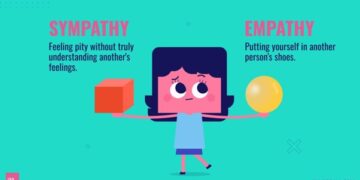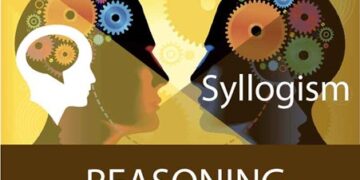Agony uncles and agony aunts will always remain in demand
 The history of problem page is almost 3 centuries old. In 1691 a 32-year-old man called John Dunton was having an affair and wanted advice without revealing his identity. Dunton was a printer and bookseller. Though he was an entrepreneurial spirited man, concurrently his adulterous spirit was also strong. It was Dunton who initiated the problem advice column format. It was first used in a magazine named The Athenian Mercury in 1691. He formed a “society of experts”, which he called The Athenian Society, to give their knowledgeable advice on questions submitted by the magazine’s readers. The magazine had an announcement on the last page encouraging readers to send in their questions, with a promise that they would get their answers from experts in the next weekly issue of the magazine. The “most nice and curious questions” ran from natural sciences to religion to literature to politics. During the lifetime of the magazine “the experts” wrestled with thousands of questions. Thus the first agony column was born.
The history of problem page is almost 3 centuries old. In 1691 a 32-year-old man called John Dunton was having an affair and wanted advice without revealing his identity. Dunton was a printer and bookseller. Though he was an entrepreneurial spirited man, concurrently his adulterous spirit was also strong. It was Dunton who initiated the problem advice column format. It was first used in a magazine named The Athenian Mercury in 1691. He formed a “society of experts”, which he called The Athenian Society, to give their knowledgeable advice on questions submitted by the magazine’s readers. The magazine had an announcement on the last page encouraging readers to send in their questions, with a promise that they would get their answers from experts in the next weekly issue of the magazine. The “most nice and curious questions” ran from natural sciences to religion to literature to politics. During the lifetime of the magazine “the experts” wrestled with thousands of questions. Thus the first agony column was born.
 It proved so popular that Dunton had to do what many advice columnists would do – he hired writers
It proved so popular that Dunton had to do what many advice columnists would do – he hired writers (of both sexes) to help him. One of them was that well-known pen-for-hire Daniel Defoe, who in 1704 started up the Review and became its “agony uncle”. More and more publications warmed to this natty device; which attracted readers while getting them to do half the work of filling up the magazine pages. By the 1740s, however, female advisers came to the forefront, and the popularity of Mrs Eliza Haywood, romantic novelist and editor of the Female Spectator, and Miss Frances Moore, editor of the Old Maid, established the tradition of advice columns. They championed the “agony aunt” columns.
(of both sexes) to help him. One of them was that well-known pen-for-hire Daniel Defoe, who in 1704 started up the Review and became its “agony uncle”. More and more publications warmed to this natty device; which attracted readers while getting them to do half the work of filling up the magazine pages. By the 1740s, however, female advisers came to the forefront, and the popularity of Mrs Eliza Haywood, romantic novelist and editor of the Female Spectator, and Miss Frances Moore, editor of the Old Maid, established the tradition of advice columns. They championed the “agony aunt” columns.
The pre-Victorian agony aunts and uncles were surprisingly broadminded and outspoken. Dunton once advised a woman fearing a lonely old age to get herself down to the docks when the fleet was in and hook a sex-starved sailor. It perhaps worked well. Immediately other problem page advisors campaigned for better rights for deserted wives and other mistreated women. The Victorians, of course, were working under a very different administration and every syllable of their responses to reader’s queries would sound the authoritarian certainty of the age. “You have foolishly lent yourself to a clandestine courtship and must withdraw from it promptly,” was one of the answers to a question by the anonymous aunt in the London Journal in 1857. And, “The serpent found his way into Eden, and why not into the park adjoining your father’s house? Do not add guilty weakness to your folly” was another answer to a different question.
 Much later, in 19th century agony aunt-hood was much different ball game. Some famous agony aunts were Peggy Makins, Daily Mirror’s Marje Proops. These ladies became campaigners – the spoke out in favor of contraception, gay rights and comprehensive sex education for children. While many raised awareness of counseling services, help lines and support groups that flourished in the 70s. Clare Rayner, an agony aunt for ‘Women’s Own’ magazine wrote in her autobiography that she answered letters on everything from worries about lopsided breasts, to violent sexual fantasies, along with every marital idiosyncrasy imaginable while gradually building up a vast library of leaflets from the Marriage Guidance Council and the Family Planning Association – as well as writing (as she was formerly a nurse) several of her own. Virgina Ironside another agony aunt says “we didn’t just give advice, but real, practical help simultaneously.” So you see, then people maintained some ethical standards; they meant doing the best for people in problems.
Much later, in 19th century agony aunt-hood was much different ball game. Some famous agony aunts were Peggy Makins, Daily Mirror’s Marje Proops. These ladies became campaigners – the spoke out in favor of contraception, gay rights and comprehensive sex education for children. While many raised awareness of counseling services, help lines and support groups that flourished in the 70s. Clare Rayner, an agony aunt for ‘Women’s Own’ magazine wrote in her autobiography that she answered letters on everything from worries about lopsided breasts, to violent sexual fantasies, along with every marital idiosyncrasy imaginable while gradually building up a vast library of leaflets from the Marriage Guidance Council and the Family Planning Association – as well as writing (as she was formerly a nurse) several of her own. Virgina Ironside another agony aunt says “we didn’t just give advice, but real, practical help simultaneously.” So you see, then people maintained some ethical standards; they meant doing the best for people in problems.
 Why those agony aunts and uncles columns are still in vogue – though today we have specialists for problems; finance related, health related, sex related, property related, tax related, astrology related so on and forth.
Why those agony aunts and uncles columns are still in vogue – though today we have specialists for problems; finance related, health related, sex related, property related, tax related, astrology related so on and forth.
We all have problems in our lives. Nevertheless, each one of us has different set of problems. Some people always seem to have relationship problems, while others are always having health problems, and some have always money related problems. While looking at other’s problems we all seem to have solutions but when it comes to solving our own problem, we find them amplified. That’s human tendency. We feel so gullible while sorting out our problems that we go to various sources for solutions. What’s really interesting is that most people seem to be able to solve problems in one area of their lives, while being completely incapable of doing the same in another area.
 The other glaring factor is, though we want solutions, we want to maintain ‘anonymity’. That’s peculiar of human nature. It’s not that we can’t solve our own problems; while we are able to solve problems in one area of our lives, while being totally clueless in another. I believe it’s got to do with our values and a thorough understanding of the problem itself. So there we go.
The other glaring factor is, though we want solutions, we want to maintain ‘anonymity’. That’s peculiar of human nature. It’s not that we can’t solve our own problems; while we are able to solve problems in one area of our lives, while being totally clueless in another. I believe it’s got to do with our values and a thorough understanding of the problem itself. So there we go.
The agony uncles and aunts touch the little, gullible psyche of ours; they phrase out their advice in such a way that we feel grateful to them. Even if the same advice comes from our parent, friend, colleague, the agony aunt’s/uncle’s advice is much preferred. And we feel indolent to Google each and every problem of ours.
 Every problem comes with constraints that put some limits on how one can handle the problem. What do the agony uncles and aunts do: they minimize the scope of the problem, advice us to stop over analyzing it, and give us the boost to fight our chronic fear of failure. Actions and solutions to problems are within us. Let’s get it straight – implementing solutions to our problems sometimes requires be on the edge and edges are not very safe.
Every problem comes with constraints that put some limits on how one can handle the problem. What do the agony uncles and aunts do: they minimize the scope of the problem, advice us to stop over analyzing it, and give us the boost to fight our chronic fear of failure. Actions and solutions to problems are within us. Let’s get it straight – implementing solutions to our problems sometimes requires be on the edge and edges are not very safe.












































